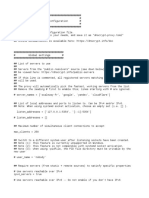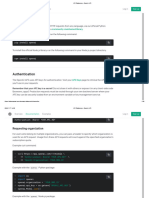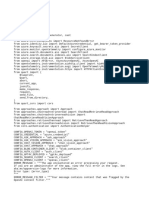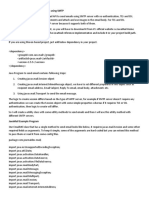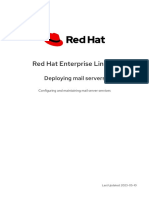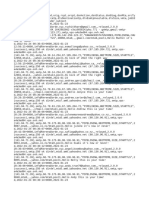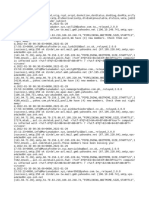0% found this document useful (0 votes)
67 views10 pagesMessage
This document outlines the configuration settings for the LivreGPT server, including options for endpoints, user balance management, and moderation systems. It details parameters for login and registration limits, message rate limiting, and integration with OpenAI and Azure APIs. Additionally, it provides guidance on setting up the server for external access and customizing various features like automated moderation and model selection.
Uploaded by
rafafabio2uCopyright
© © All Rights Reserved
We take content rights seriously. If you suspect this is your content, claim it here.
Available Formats
Download as TXT, PDF, TXT or read online on Scribd
0% found this document useful (0 votes)
67 views10 pagesMessage
This document outlines the configuration settings for the LivreGPT server, including options for endpoints, user balance management, and moderation systems. It details parameters for login and registration limits, message rate limiting, and integration with OpenAI and Azure APIs. Additionally, it provides guidance on setting up the server for external access and customizing various features like automated moderation and model selection.
Uploaded by
rafafabio2uCopyright
© © All Rights Reserved
We take content rights seriously. If you suspect this is your content, claim it here.
Available Formats
Download as TXT, PDF, TXT or read online on Scribd
/ 10











